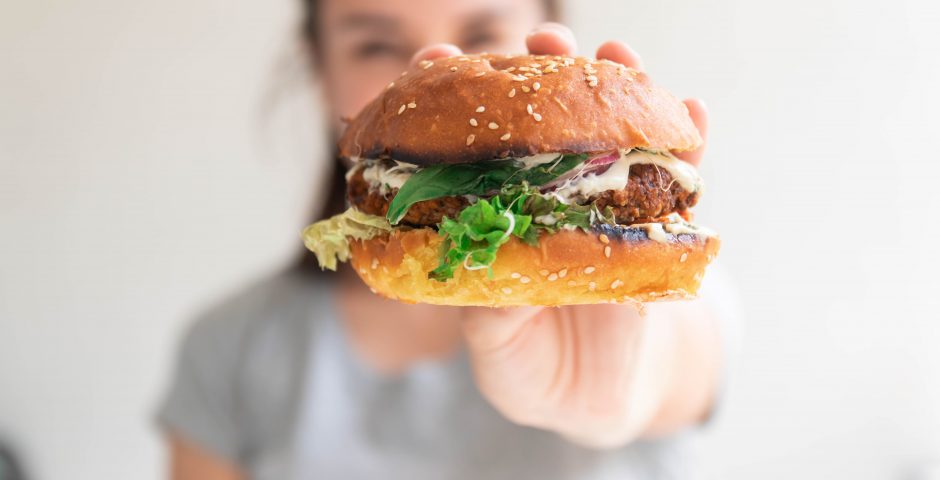Will Europe ban the veggie burger?

The consequences of amendment 165 and amendment 171
Almond drink, vegeterrier, plant-based alternative to yogurt, veggie bakes. These are all names of products that we can classify under the name ‘plant-based alternatives’. These alternatives are available in large quantities in the supermarket and are here to stay because veganism is hot. The rising popularity of these products has now also made its way to the political arena. For example, it has led to an attempt to tighten the rules on the naming of plant-based alternatives to meat and dairy within the European Union. In October last year the European Parliament voted on amendment 165 and amendment 171, both intended to tighten the policy surrounding the naming of meat and dairy products. What is this policy and what are the consequences of these amendments in practice? And what are the reactions of the parties concerned?
Common Agricultural Policy
Amendments 165 and 171 are legislative amendments concerning the naming of meat substitutes and dairy substitutes respectively. Both are intended to update Regulation on the Common Market Organisation (CMO) for Agricultural Products (Reg. No 1308/2013). This regulation is part of the Common Agricultural Policy and harmonises all agricultural products on the European market. In practice, this means that in all member states the same rules apply to agricultural products, including the naming. This regulation, which has been in force since 2013, lays down specific definitions, designations and sales descriptions of products within a number of agricultural sectors. This concerns the designation of meat and dairy products, but also wine products, eggs and oils. These designations are laid down in detail, as are the required characteristics that the products must meet in order to bear a particular name.
In 2019, the European Parliament’s Committee on Agriculture and Rural Development published a report proposing various adjustments to the current Common Agricultural Policy. These adjustments will then become part of the new agricultural policy that will enter into force in 2021. Although the report proposed improvements to, for example, the designation and packaging of non-alcoholic wines, it was amendment 165 and amendment 171 that caused a great deal of controversy.
#Schnitzelgate
Amendment 165 introduces a completely new point that should become part of the regulation, the so-called ‘veggie burger ban’. In addition to deepening the definition of ‘meat’, it stipulates that “names currently used for meat products and meat preparations may only be used for products containing real animal meat.” Examples of names mentioned are steak, sausage, schnitzel, burger and hamburger. If this amendment were to be adopted, it would mean that a vegan alternative to a hamburger could no longer be called a veggie burger, and so on. This is only about the name; the appearance of a product may still resemble that of the real pieces of meat. This would protect the designations of meat and thereby protect consumers from confusion. According to Éric Andrieu, EU rapporteur for the Committee on Agriculture and Rural Development, alternatives to meat should be named more appropriately so that people know what they are eating. In that case, a steak could only come from an animal and a plant-based substitute, with an appropriate name, only from plants.
The amendment caused a reaction from the producers of these veggie burgers and sausages. Producer The Vegetarian Butcher, for example, spoke out against the ban in the form of a ‘visual petition’. By using the hashtag ‘schnitzelgate’, people could complain about this change in the law on Instagram. On the website of The Vegetarian Butcher it can be read that they do not believe that their products are confusing at all. The naming of the products, most of the time containing a reference to the animal product, would only be meant to inform the consumer what to expect from it. ProVeg, an international organisation that promotes plant-based nutrition, also published a petition which has been signed more than 270,000 times. In a way, we can say that all this effort has not been for nothing, as the European Parliament eventually voted against the amendment. This means that meat substitutes can still be named after their animal counterparts and we can still enjoy a delicious veggie burger. But what about dairy substitutes?
Peanut butter
The amendment that deals with the naming and shaping of plant-based dairy substitutes, amendment 171 has been adopted by the European Parliament, in contrast to number 165. This amendment is slightly different to the previous one and adds something to an already existing ban instead of introducing a ban. The CMO for agricultural products already stipulated that plant-based alternatives could not directly bear the name of dairy products derived from animals. This explains why you will not find oat milk or soya yogurt on the supermarket shelves, but rather oat drink and a soya plant-based alternative to yogurt. However, each member state has the possibility to make exceptions in this case. This is why you can still enjoy a sandwich with peanut butter instead of it being named peanut paste.
In 2017, this existing ban was again highlighted by the TofuTown court case. The German producer was dragged before the European Court of Justice by the also German Verband Sozialer Wettbewerb. This association, which claims to fight unfair competition, claimed that TofuTown, with names such as ‘veggie cheese’, did not comply with the European directives for dairy product names. Based on the CMO for agricultural products, the European Court ruled in favour of the Verband Sozialer Wettbewerb and decided that TofuTown had to change its product names. Therefore, the packaging of brands that fall under TofuTown no longer shows the word ‘cheese’ but, in the case of the brand Soyatoo, wordplays like ‘she’s swiss’ and ‘she’s moza’.
If there are already so many rules about dairy products in the EU, what does amendment 171 have to add that it causes so much fuss? In addition to the fact that the dairy names may not be used, producers are now also being made more difficult in terms of the presentation and design of their products. With these new rules the designations of dairy products would be protected against “any misuse, imitation or evocation” and “any other trade description or practice likely to mislead the consumer as to the true nature or composition of the product”. This would therefore mean that the previously mentioned name ‘plant-based alternative to yogurt’ would be banned and that oat drinks may no longer be packaged in a way that resembles a milk carton.
This amendment also provoked various reactions from parties concerned. Even before the vote in October, more than 30 parties including Unilever and Nestlé published a letter to the members of the European Parliament asking them to vote against both amendment 165 and amendment 171. According to these parties, the stricter requirements would impede the development of the plant-based food sector, while this sector aims to enable people to make healthier choices. ProVeg also published a petition against amendment 171, which has meanwhile been signed by more than 300,000 people. A reaction in favour of the amendment came from the European Dairy Association (EDA). They published a letter of thanks on February 9 of 2021 to rapporteur Éric Andrieu, mentioned earlier in the article. According to them, this amendment will protect the name and status of dairy products and with this letter they want to show their gratitude.
Game over?
Does this mean it is a win for meat substitutes and game over for dairy substitutes? No. While it is unlikely that amendment 165 will make a comeback, the final fate for plant-based dairy alternatives has not yet been decided. What follows now are negotiations between the European Commission, the European Parliament and the European Council as part of the conclusion of the Common Agricultural Policy negotiations and thus the final outcome of the report. The European Commission or the European Council could decide that the tightening of the already existing rules is not necessary. In that case, amendment 171 could still be swept off the table and we could, at least for now, be drinking oat drink from a cardboard pack instead of, for example, a flower pot.
Esmee Slutter studied History at Radboud University and specialised in European cultural history. At the moment she is working on her bachelor’s degree in Russian Studies at Leiden University.
Featured image: Shutterstock




